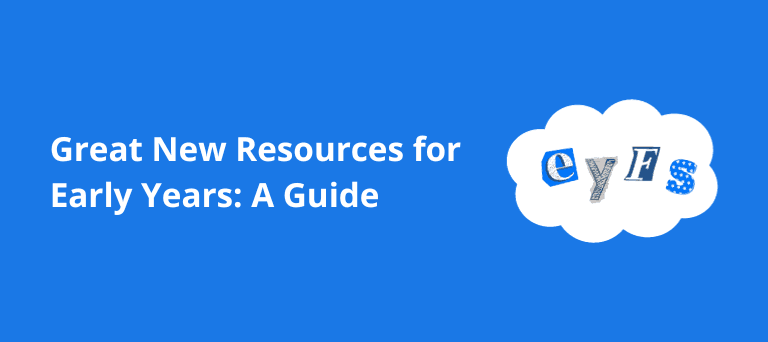Ethan Martinez
3 Dec 2023
5
min read

The government has launched its largest ever investment in childcare, providing additional support and resources for families across the country. In this comprehensive guide, we will explore the brilliant new resources available for Early Years, ensuring that every parent has access to the childcare they need.
The Updated Eligibility Checker: Personalised Support
To make it easier for parents to navigate the support available to them, the government has launched an updated eligibility checker on childcarechoices.gov.uk.
This user-friendly tool provides personalised information on the various support programmes based on the age of your child and your earnings. It allows you to determine which of the new transformational childcare offers you are eligible for, ensuring that you receive the maximum support available.
Additionally, the website offers the option to sign up for regular updates, ensuring that you are always informed and aware of any actions you need to take to access the support you are entitled to. For example, you will receive notifications when the new 15 free hours for two-year-olds becomes available for sign-ups, starting from April 2024.
Saving money
As part of the government's commitment to supporting working parents, they are rolling out the next stage of their childcare plan. This plan aims to save working parents using 30 hours of childcare up to £6,500 per year. To achieve this, £100 million is being made available for local areas to support childcare settings in increasing their physical space. This investment is anticipated to add thousands of new places across the country, ensuring that more children have access to high-quality childcare.
Education Secretary, Gillian Keegan, highlights the importance of flexibility in transforming childcare for families. Whether it's offering quality childcare outside of school hours or ensuring that there are more early years places where they are needed most, the government's goal is to remove the choice between having a career and having a family. This historic investment in childcare aims to provide every parent who wants it with access to the childcare they need.
Wraparound Childcare: Supporting Primary School Children and Working Parents
Recognising the need for wraparound childcare for primary school children, the government is distributing £289 million to local authorities. This funding ensures that families can access childcare between 8 am and 6 pm. The allocation of funds is based on anticipated need, plugging gaps in the existing market. The government's aim is for every parent, regardless of their location, to be able to access wraparound childcare for primary-age children in their local area by 2026.
Work and Pensions Secretary, Mel Stride, emphasises that boosting employment is crucial for growing the economy. To support this, the government has increased the amount parents receiving Universal Credit can claim per month for childcare. This increase provides parents with the flexibility and security they need to find a job, support their children, and reap the benefits of work. Stride encourages parents to access the available resources and consult with work coaches in job-centres who are there to assist them in finding work or enhancing their skills.
Childminder Start-Up Grant Scheme: Boosting Flexible Childcare Options
To further enhance flexible childcare options, the government has confirmed the opening of the childminder start-up grant scheme. This scheme provides financial support to individuals who choose to register as childminders. Those who register with Ofsted will receive a grant of £600, while those who register with a childminder agency will receive a grant of £1,200. This initiative aims to boost the number of childminders and provide parents with more flexible childcare choices.
Early Years Foundation Stage (EYFS) Consultation: Empowering the Early Years Workforce
The Department for Education has responded to the recent EYFS consultation, with the majority of proposed changes set to go ahead. These changes aim to empower the early years workforce and encourage more people to consider childcare as a rewarding career. One significant change is the allowance for managers to decide whether students and apprentices can count in ratios where appropriate. This decision will empower managers and allow trainees to gain valuable experience in their early years career.
While some proposed changes have not been deemed necessary, such as staff:child ratio requirements outside of core hours, this work demonstrates the government's commitment to delivering high-quality, affordable childcare. By removing unnecessary burdens and providing resources for professional growth, the government aims to ensure that childcare is accessible and meets the needs of parents and children across the country.
British Irish Council: Discussing Childcare Solutions
The government's commitment to childcare and its overall approach will be discussed at this year's early years British Irish council. The annual meeting, hosted by David Johnston, will bring together representatives from the UK government, Irish government, devolved governments, and crown dependencies. The delegates will discuss childcare-related challenges and work towards finding solutions that benefit all member administrations.



